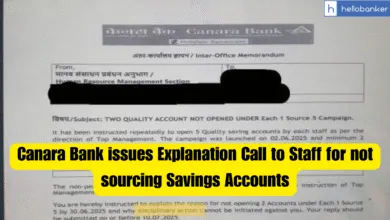People can send Rs.2,000 notes by post to RBI and it will be credited directly to their bank account

| ➡️ Get instant news updates on Whatsapp. Click here to join our Whatsapp Group. |
People can send their Rs 2,000 banknotes to specified regional offices of the Reserve Bank through the insured post for credit in their bank accounts. This is a hassle-free option for the people who are away from the regional offices of the Reserve Bank.
Besides, the RBI is offering TLR (Triple Lock Receptacle) form to people for a deposit of Rs 2,000 banknotes in their bank account.
“We encourage customers to send Rs 2,000 notes through the insured post to the RBI for direct credit in their account in the most seamless and secure manner. This (will) save them from the hassle of travelling to specified branches and standing in queue,” RBI Regional Director Rohit P Das said.
Both the options of TLR and insured post are highly secured, and there should not be any fear in the mind of the public relating to these options, he said, adding that about 700 TLR forms have been received so far by the Delhi office alone.
What is insured post?
Articles may be insured at all post offices. Insurance covers all risks in course of transmission by post.
What is TLR?
In order to provide note exchange facility to members of the public who cannot wait at the Bank’s counters to tender their mutilated/cut notes, the Bank’s Offices provide a facility of depositing mutilated/cut notes in a locked box called “Triple Lock Receptacle (TLR)”. The TLR box is kept near a specified counter and notes can be dropped into the box in a closed cover which can be obtained from the enquiry counter. The tenderers are required to write the particulars of the notes tendered by them, their name, address and bank account number on the cover. Members of the public can also send mutilated notes by insured and registered post to RBI Offices. In their own interest, such covers should be sent through Registered and Insured post. The exchange value of notes which are found payable under the Note Refund Rules is credited to the bank account of the tenderer through Electronic Clearing Service/ Electronic Fund Transfer (EFT) which is at present free of cost. In case the tenderer does not have bank account or the place where he resides does not have a clearing service/provision of EFT, the exchange value is remitted by means of bank draft/money order at the cost of the tenderer. The TLR facility is available only for mutilated/cut notes and not for soiled notes.
Exchange Date
Public and entities holding such notes were initially asked to either exchange or deposit them in bank accounts by September 30. The deadline was extended to October 7.
From October 8, individuals have been provided with the choice of either exchanging the currency or having the equivalent sum credited to their bank accounts at 19 offices of the RBI.
RBI Offices
The 19 RBI offices depositing/exchanging the bank notes are in:
- Ahmedabad
- Bangalore
- Belapur
- Bhopal
- Bhubaneswar
- Chandigarh
- Chennai
- Guwahati
- Hyderabad
- Jaipur
- Jammu
- Kanpur
- Kolkata
- Lucknow
- Mumbai
- Nagpur
- New Delhi
- Patna
- Thiruvananthapuram
